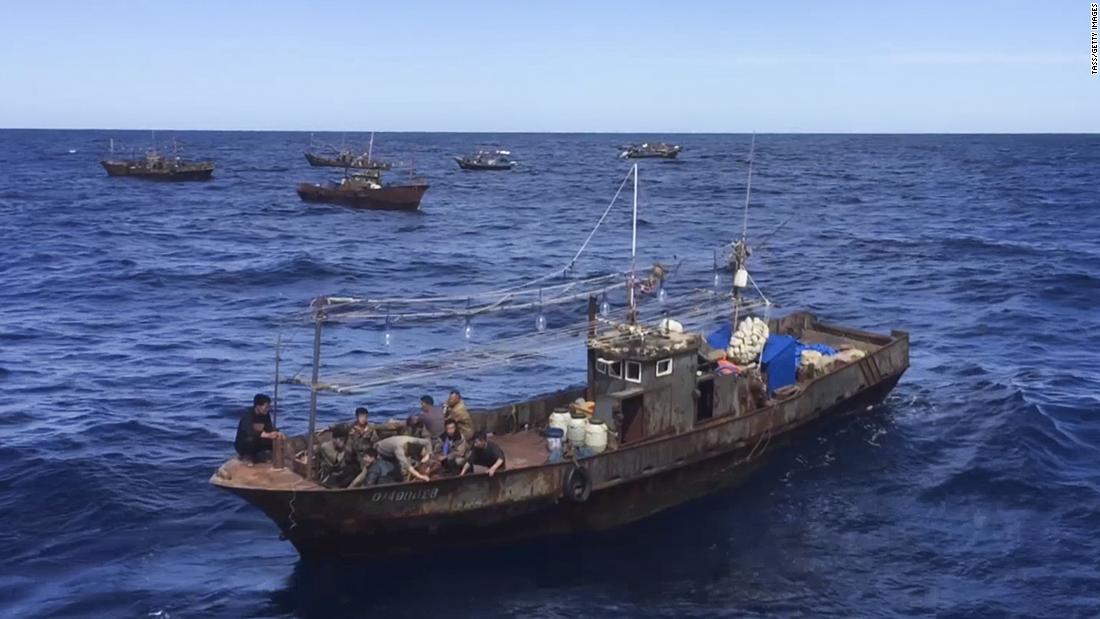
Research by the nonprofit Global Fishing Watch found that the number of days North Korean ships spent on squid in Russian waters dropped by 95%, from 146,800 to 6,600. Squid fishing in North Korea’s own territorial waters also suffered greatly.
Global Fishing Watch used satellite imagery and other maritime monitoring technologies to track the number of squid fishing vessels during the fishing season from May to November. Squid fishing is one of the easiest activities to track from afar as it is usually done at night with powerful lighting equipment.
According to Global Fishing Watch, squid is popular in Northeast Asia, and rising demand in recent years has threatened the sustainability of the region’s already dwindling squid stocks. In North Korea, squid is fermented, pickled, barbecued, stir-fried or dried and served as a snack.
Jaeyoon Park, a senior data scientist at Global Fishing Watch, said the unprecedented decline appears to be due to strict entry and exit controls North Korean leader Kim Jong Un has put in place to keep Covid-19 out of the country.
Experts believe Kim sealed North Korea’s borders last year, cutting the last of his sparse ties to the outside world, knowing Pyongyang’s dilapidated healthcare infrastructure would be overwhelmed by a coronavirus outbreak.
North Korea says it has not contracted a single case of Covid-19, a claim most experts dismiss as propaganda. But the country has seemingly been spared a great wave of infections, thanks in part to strict anti-epidemic measures, traffic controls and border closures.
“We can safely say that there are national shortages of several important foods,” he said.
Fishing far from home
North Korean fishermen often operate illegally outside the country’s own waters due to overcrowding.
Global Fishing Watch’s Park said squid fisheries in both Russian and North Korean territorial waters have declined dramatically in 2020. During the peak of the season from September to November, Global Fishing Watch found that 50% fewer vessels of Chinese origin were operating in North Korean waters than it did about the same time in previous years.
However, the North Korean squid fishing boats did not use them. There was no corresponding increase in North Korean squid fisheries in the country’s own territorial waters, so it is likely that much of North Korea’s squid stock will “have disappeared completely by 2020,” Park said.